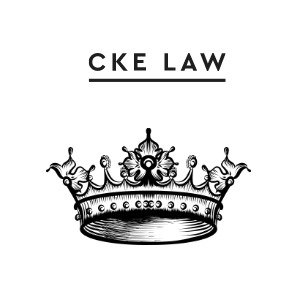Best Franchising Lawyers in United Kingdom
Share your needs with us, get contacted by law firms.
Free. Takes 2 min.
Or refine your search by selecting a city:
List of the best lawyers in United Kingdom
About Franchising Law in United Kingdom
Franchising in the United Kingdom is a popular and well-established business model that allows individuals to operate their own businesses under the brand and support of an established company. This model is beneficial for both franchisors and franchisees and can be seen in various sectors, from fast food and retail to services and hospitality. Franchising law in the UK is primarily governed by contract law, but specific regulations and ethical guidelines also play critical roles. The British Franchise Association (BFA) is a notable self-regulatory body that helps maintain high industry standards.
Why You May Need a Lawyer
Engaging a lawyer for franchising matters in the UK can provide essential clarity and direction in several circumstances including:
- Reviewing and negotiating franchise agreements which often contain complex and legally binding terms.
- Resolving disputes that may arise between franchisors and franchisees over performance, territory, or other contractual obligations.
- Guiding franchisees through the process of exiting a franchise relationship or selling a franchise business.
- Assisting with compliance to ensure all practices meet UK laws and relevant regulations.
- Providing advice on establishing a franchise model for businesses looking to expand through franchising.
Local Laws Overview
Franchising in the UK is not regulated by specific legislation, but several key legal aspects affect franchising:
- Contract Law: Governs the franchise agreements, addressing rights, duties, and obligations.
- Competition Law: Ensures that practices do not constitute anti-competitive behavior. The Competition and Markets Authority (CMA) monitors these aspects.
- Intellectual Property Law: Protects the franchisor's brand, trademarks, and proprietary systems.
- Data Protection and Privacy Laws: Compliance with GDPR and UK data protection legislation is essential for safeguarding customer and business data.
Frequently Asked Questions
1. What is a franchise?
A franchise is a type of business agreement where one party (the franchisor) grants another party (the franchisee) the right to operate a business using its branding, products, and operational model.
2. Do I need a lawyer to review my franchise agreement?
Yes, it is advisable to have a lawyer review your franchise agreement to understand all obligations and rights, ensuring your interests are protected.
3. What is the British Franchise Association (BFA)?
The BFA is a voluntary self-regulatory body that advocates for ethical franchising practices in the UK through its framework and accreditation.
4. Can a franchise be modified to suit local needs?
Yes, but any modification requires agreement from both parties and should be documented in an addendum to the franchise agreement.
5. What are franchise fees?
Franchise fees are payments made by the franchisee to the franchisor, which typically includes an initial fee and ongoing royalties based on sales.
6. How long is a typical franchise agreement?
A typical franchise agreement in the UK may last between 5 to 20 years, depending on the nature of the business.
7. What happens if a franchisee breaches the agreement?
If a franchisee breaches the agreement, the franchisor may have the right to terminate the agreement and seek damages, depending on the contract terms.
8. Can I sell my franchise business?
Most franchise agreements allow selling the franchise business, but typically require approval from the franchisor and adherence to established procedures.
9. What is franchisor support?
Franchisor support can include training, marketing assistance, business strategy advice, and operational guidance, which varies by franchisor.
10. Are there any restrictions on the location of my franchise?
Yes, franchise agreements usually outline specific territorial rights to protect each franchisee’s business area, avoiding overlap with other franchisees.
Additional Resources
For further guidance on franchising, consider accessing resources from the following:
- British Franchise Association (BFA): Offers insights, events, and resources for ethical franchising practices.
- Competition and Markets Authority (CMA): Provides information on competition laws that affect franchising.
- The Intellectual Property Office (IPO): Offers guidance on brand protection and trademark registration.
- Local Chambers of Commerce: May provide networking opportunities and franchising information.
Next Steps
If you need legal assistance with franchising, the following steps may be beneficial:
- Research Qualified Solicitors: Look for legal professionals specializing in franchising law.
- Schedule Consultations: Speak with multiple lawyers to understand their experience and approach.
- Prepare Documentation: Gather necessary documents, including franchise agreements, correspondence, and financial statements.
- Understand Fee Structures: Discuss fees and ensure clarity on any costs involved in seeking legal advice.
Lawzana helps you find the best lawyers and law firms in United Kingdom through a curated and pre-screened list of qualified legal professionals. Our platform offers rankings and detailed profiles of attorneys and law firms, allowing you to compare based on practice areas, including Franchising, experience, and client feedback.
Each profile includes a description of the firm's areas of practice, client reviews, team members and partners, year of establishment, spoken languages, office locations, contact information, social media presence, and any published articles or resources. Most firms on our platform speak English and are experienced in both local and international legal matters.
Get a quote from top-rated law firms in United Kingdom — quickly, securely, and without unnecessary hassle.
Disclaimer:
The information provided on this page is for general informational purposes only and does not constitute legal advice. While we strive to ensure the accuracy and relevance of the content, legal information may change over time, and interpretations of the law can vary. You should always consult with a qualified legal professional for advice specific to your situation.
We disclaim all liability for actions taken or not taken based on the content of this page. If you believe any information is incorrect or outdated, please contact us, and we will review and update it where appropriate.
Browse franchising law firms by city in United Kingdom
Refine your search by selecting a city.
















